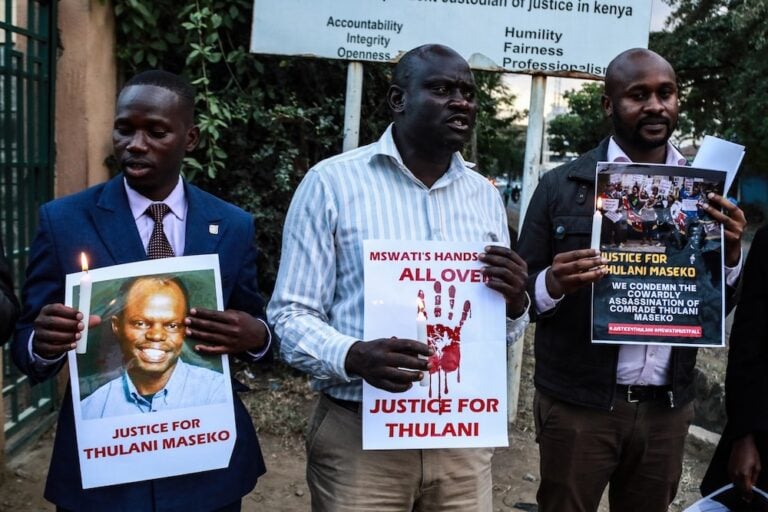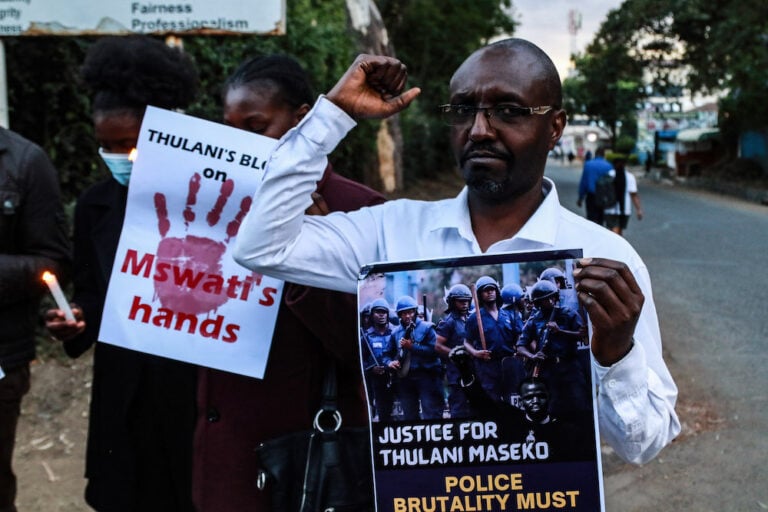(RSF/IFEX) – In a letter to the king of Swaziland, Mswati III, RSF protested the implementation of a new decree which gives the king full power to censor information. RSF asked the king to annul the decree and allow a free and independent press in Swaziland. “The last absolute monarchy on the entire continent is […]
(RSF/IFEX) – In a letter to the king of Swaziland, Mswati III, RSF protested the implementation of a new decree which gives the king full power to censor information. RSF asked the king to annul the decree and allow a free and independent press in Swaziland. “The last absolute monarchy on the entire continent is also one of the most repressive countries concerning censorship. The king now has total freedom to ban and close publications in his country,” explained RSF Secretary-General Robert Ménard. Finally, RSF asked Swazi authorities to ratify the International Covenant on Civil and Political Rights, which guarantees press freedom.
According to information obtained by RSF, on 22 June 2001, the king of Swaziland signed Decree n°2 / 2001, which reinforces his power to control the press. The text allows the “appropriate ministry” the power to ban a publication “without any reason” and without legal proceedings. The decree ends a months-long legal battle between the king and the high court, which declared the closures of the monthly “The Nation” and the weekly “The Guardian” to be “illegal” (see IFEX alerts of 4 June, 30, 23, 22, 14, 10, 9 and 8 May and 21 March 2001). Both publications are seen as very critical of the authorities. Decree n°2 / 2001 also eliminates the possibility of bail for those accused of violating the 1938 Act on Sedition and Subversive Acts, especially if they are considered a “danger to public order” or a threat to state security. Finally, the decree recalls that the king’s 1973 Royal Proclamation to the Nation is the “supreme law”. This text explains that “all legislative, executive and judiciary power is vested in” the king.


